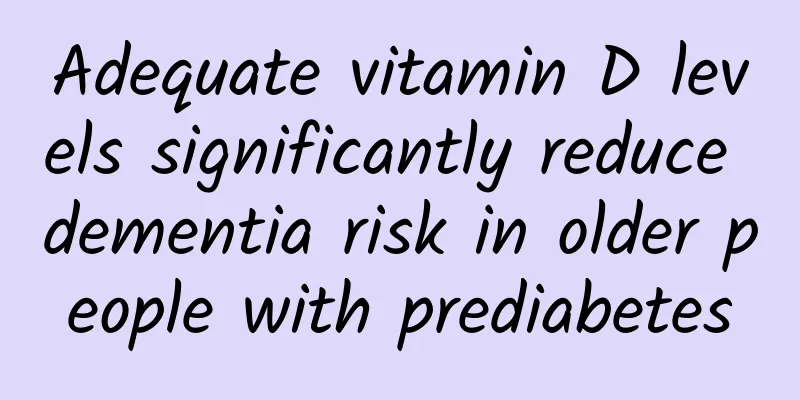How much do you know about Helicobacter pylori and C14 breath test?

|
According to relevant surveys, the infection rate of Helicobacter pylori is close to half among residents aged 20 to 40 in my country, and the infection rate of Helicobacter pylori in people over 70 is as high as about 80%. So, what is Helicobacter pylori? Why is its infection rate so high? What are the hazards after infection? How to detect Helicobacter pylori with the carbon 14 breath test? I believe everyone has many questions about Helicobacter pylori and the carbon 14 breath test, and the following will answer them for you. The picture comes from the Internet 1. Understanding Helicobacter pylori 1. What is Helicobacter pylori? Helicobacter pylori (HP) is a Gram-negative, microaerophilic bacterium that can live in the stomach and duodenum. HP can cause mild chronic inflammation of the gastric mucosa, or lead to gastric ulcers, duodenal ulcers and gastric cancer. The picture comes from the Internet 2. What are the symptoms of Helicobacter pylori infection? The main symptoms of Helicobacter pylori infection include bad breath, acid reflux, and stomach pain. This is mainly because Helicobacter pylori can induce gastrin secretion, which causes heartburn and sourness in the human body. In patients with gastric ulcers, Helicobacter pylori causes stomach pain, which is the main symptom. Helicobacter pylori can cause chronic gastritis, the symptoms of which are mainly dull pain and discomfort in the upper abdomen, as well as acid reflux, vomiting, and nausea. The course of the disease progresses slowly and is prone to recurrence. After infection with Helicobacter pylori, a variety of pathogenic factors are produced, causing damage to the gastric mucosa. The clinical symptoms are diverse, and patients often experience belching, acid reflux, and a feeling of fullness. In general, Helicobacter pylori infection sometimes has no obvious symptoms and needs to be diagnosed through examination. Generally speaking, people who do not pay attention to hygiene, like to eat raw and cold food, have a family history of the disease, and have low immunity are more likely to be infected with Helicobacter pylori. In addition, long-term excessive stress and anxiety will affect stomach health, reduce stomach immunity, and easily lead to Helicobacter pylori invasion and infection of the stomach. The picture comes from the Internet 3. Is Helicobacter pylori contagious? Helicobacter pylori is contagious. It is a type of bacteria that colonizes the oral cavity, gastric mucosa and other parts of the body. It can be transmitted through multiple routes such as oral-oral transmission and fecal-oral transmission. Generally, sharing tableware, kissing, mother-to-child transmission, etc. can cause bacterial transmission. In addition, the symptoms of the disease are not obvious, and many people will not find it without examination, which leads to the widespread spread of Helicobacter pylori. 2. How to test for Helicobacter pylori? The detection methods of Helicobacter pylori include carbon 14 breath test, carbon 13 breath test, gastroscopy biopsy, blood test, etc. Among them, carbon 14 breath test is the gold standard for detecting Helicobacter pylori in the current medical field. Since Helicobacter pylori produces highly active urease, after taking carbon 14 capsules, if infected with this bacterium, the urease in the stomach can decompose urea into ammonia and carbon dioxide, and carbon 14 carbon dioxide is discharged through exhalation. The exhaled gas is collected to measure the carbon dioxide content, which can determine whether there is infection. The carbon 14 breath test has the advantages of being non-invasive, painless, easy to operate, and no cross infection, and the accuracy rate is above 95%. It has been widely promoted in clinical practice. The carbon 14 breath test process is as follows: 1. The subject should swallow the carbon 14 capsule with warm water on an empty stomach or two hours after eating, and wait for about 15 to 30 minutes. 2. Open the packaging bag of experimental materials, remove the exhalation card and the blowing mouthpiece, and insert the blowing mouthpiece into the exhalation card in the direction marked by the arrow. 3. Blow air through the blowing nozzle in your mouth. Try to blow as long as possible. You can breathe in the process, but do not inhale backwards. 4. Blow for about 1-3 minutes until the indicator changes from orange-red to yellow. If the color does not change completely after the time, you still need to stop blowing. Remove the blowing nozzle, hand the exhalation card to the medical staff, and wait for the test results. The picture comes from the Internet The carbon-14 breath test is suitable for the following situations: (1) patients with indigestion who are newly diagnosed and clinically suspected of having Helicobacter pylori infection; (2) patients with a family history of gastric cancer or those who want to prevent gastric cancer; (3) patients who need to evaluate the efficacy of Helicobacter pylori eradication and diagnose recurrence; (4) patients who have been taking nonsteroidal anti-inflammatory drugs for a long time; (5) patients with acute or chronic gastritis, gastric or duodenal ulcer, mucosa-associated lymphoid tissue lymphoma, etc. Note: (1) The carbon-14 test needs to be performed on an empty stomach; (2) It is not recommended for breastfeeding women, pregnant women, children under 7 years old, and women and men who are planning to get pregnant in the next six months to undergo the test; (3) It is not recommended for those who have recently taken antibiotics, bismuth, proton pump inhibitors and other drugs to undergo the test, as it will affect the diagnosis results. Therefore, the drugs need to be stopped two weeks before the test; (3) Patients with a recent history of upper gastrointestinal bleeding are not recommended to undergo the test. 3. What should I do if I am infected with Helicobacter pylori? Generally, after infection with Helicobacter pylori, doctors recommend treatment unless there are contraindications to medication. Commonly used drugs are bismuth quadruple, i.e. proton pump inhibitors, bismuth and 2 antibiotics, which are used together for 10 to 14 days. The specific use of drugs needs to be in accordance with the doctor's advice. A reexamination can be performed more than one month after stopping the medication, using a carbon 14 breath test. A negative result indicates that the bacteria have been eradicated; a positive result indicates that the treatment has failed and the treatment plan needs to be adjusted. 4. How to prevent Helicobacter pylori infection? 1. Develop good hygiene habits. When using vegetables, fruits, rinse them or peel them as much as possible; 2. Reduce eating out, avoid sharing food with each other during meals, and try to use serving chopsticks and spoons to serve rice and food; 3. Avoid eating half-cooked food, drinking raw water, eating overly hot food such as hot pot, barbecue, etc., and reduce the intake of alcohol, coffee or spicy food; 4. If someone around you is infected with Helicobacter pylori, you need to receive treatment under the guidance of a doctor and take protective measures; 5. It is forbidden to feed children food by mouth; 6. Tableware should be thoroughly cleaned and disinfected. It can be heated in a microwave or with 75% alcohol to kill Helicobacter pylori. 7. Those who have been infected with Helicobacter pylori or have a history of infection need to undergo regular follow-up examinations and, if necessary, gastroscopy.
Helicobacter pylori is a Class I carcinogen recognized by the World Health Organization and is also the culprit of diseases such as gastric ulcers and atrophic gastritis. In order to reduce the risk of infection, it is necessary to develop good hygiene habits in daily life, use serving chopsticks when dining together, avoid eating raw and cold food, etc. If you suspect that you are infected with Helicobacter pylori, you can use the carbon 14 breath test to test it. If you are infected, you need to receive treatment in time and take medicine under the guidance of a doctor. At the same time, you must take protective measures to avoid infecting your family or friends. Regular check-ups are also required after recovery. |
<<: How to determine if pancreatic islet function is impaired
>>: Children's Oral Health: The Secret to a Whiter Smile
Recommend
What does it mean when a woman has dimples on her waist?
The vast majority of women have smooth waists and...
Why does a pregnant woman's stomach growl?
Many pregnant women experience rumbling stomachs ...
What should a pregnant woman's hospital delivery bag contain?
After ten months of pregnancy, when it is time to...
How to whiten and remove freckles in summer?
Whether male or female, the pursuit of beauty is ...
Transparent mucus flowing from a woman's vagina
My body was in good health before, and the amount...
How long does it take for a woman to conceive after having her IUD removed?
The IUD is a ring-shaped object made of metal and...
What are the early symptoms of cervical fibroids?
Cervical fibroids mostly occur in the uterus. The...
Skin will get better after sex
Your skin may get better after sex, which is due ...
Reasons for women sweating during menopause
Many women are not familiar with the phenomenon o...
The love and hate between allergic rhinitis and colds
I kept sneezing and having a runny nose during th...
Do breasts need compression?
Rub the breasts gently, and use your mouth and to...
Is it okay to have sex 3 days before hysteroscopy?
Hysteroscopy is a very good examination method. I...
Normal value of human villus after abortion
Many people who have miscarriages choose painless...
Why do the more outstanding children tend to be more distant from their parents? Is it true that outstanding children do not take care of their parents?
There is no parent who does not want their childr...









